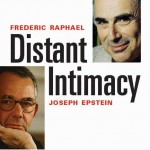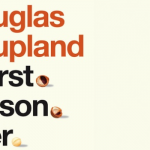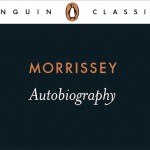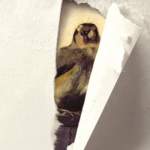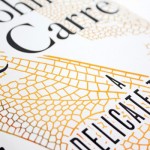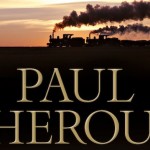Hatchet Job 2014 | Previous years | Manifesto | Press
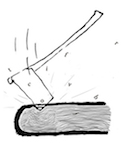
Craig Brown on Distant Intimacy: A Friendship in the Age of the Internet by Frederic Raphael and Joseph Epstein
THE MAIL ON SUNDAY
OF THE making of books there is no end, or so the Bible says. Well, here comes yet another, though this one has, its publishers believe, a unique selling point. ‘This delightful book of writer-to-writer correspondence joins a full shelf of volumes in the genre,’ gushes the blurb, ‘yet it is perhaps the first set of such letters ever transacted via the internet.’
‘So what?’ one might be forgiven for asking. In these cash-strapped times, are we meant to congratulate them for saving money on ink, stamps and envelopes? And why should a correspondence by email be any more or less interesting than a correspondence by letter?
It soon emerges that the two emailers – both elderly writers with their glory days behind them, one American, one British – have never met or even spoken on the telephone. In his introduction, the American emailer, Joseph Epstein, argues that this is what makes their year-long correspondence ‘a touch magical’, though a better way to describe it would be ‘a touch artificial’.
Frederic Raphael is a British author who peaked in the Seventies, and remains best known for his hit 1976 television series The Glittering Prizes. Joseph Epstein is an American author and essayist who – he tells us in his introduction – was once described by an editor as ‘the American Frederic Raphael’. This might have caused others to punch that editor but Epstein was, he says, ‘much pleased by this remark’.
A few years ago (the publishers pretend it was last year, but under ‘October’ there is a reference to David Cameron still being Leader of the Opposition, which makes it 2009) Raphael emailed Epstein with the suggestion that ‘there might be some fun, not to mention $$$’ in emailing each other for a year, then publishing the results.
And so they get going, each of them dutifully delivering between 1,500 to 1,800 words a week, every week for a year. The first thing to be said about their exchanges is how extraordinarily unpleasant they are, almost as though they were trying to make it into the Guinness Book Of Records under a section called Authors, Most Bilious. It is all a bit like watching a tennis match, but instead of the competitors bashing balls to and fro, they prefer to bash authors and artists more successful than themselves.
Not a paragraph goes by without the expression of a fresh loathing. Epstein hates, in no particular order, the director Mike Nichols (‘wealthy creep’), Arthur Miller, Walter Cronkite (a ‘dope, a jerk’), Edward Albee, Ernest Hemingway (‘stupid’), Steven Spielberg, George Clooney, Robert Redford, William Styron, Salman Rushdie, Joyce Carol Oates, Colm Toibin, David Hockney, Don DeLillo, Seamus Heaney . . .
His list is long, but not nearly so long as Raphael’s. In strict alphabetical order, Raphael hates Kingsley Amis (‘the worst influence on the English novel since the war’), Julian Barnes, Saul Bellow, Alan Bennett (‘carefully preserves the lineaments of the local lower-middle class provinciality which he seems to have done everything possible to leave behind’), A. S. Byatt, Alan Clark, Jesus Christ (‘he never said anything that one wished one had said oneself, did he?’), Richard Dawkins, Sebastian Faulks, Christopher Hitchens (‘lazy, facile’), Alan Hollinghurst, Michael Holroyd (‘gleams with renown and self-importance’), Michael Ignatieff (‘the smoothies’ smoothy’) . . . Enough!
On reflection, it might be quicker to list everyone Raphael loves, a roll-call that begins with R for Raphael and ends, a little abruptly, with R for Raphael.
Freddie, as he signs himself, is, it emerges, his own best friend. ‘I still write like a man who never wanted to do anything else much, except make love, of course, and a name, I guess,’ he says. He also notes that ‘I find that I am able to hold an audience better now than ever’ and recalls that ‘Stanley Donen did once say to me that I was the most talented man he had ever met’.
His faults are few and far between, though he does at one point confess, boastfully, that ‘I have sometimes been accused of “moral courage” .’
Often, like school bullies, the two men can be spotted urging one another on to greater heights of malice, so that after Raphael says of the novelist Saul Bellow: ‘His stuff combined sincerity with bad faith in a way that almost smelled’, Epstein, who is, in school parlance, the suck-up, replies: ‘You’ve nailed Saul Bellow, in sniffing out the fraudulence behind his literary enterprise . . . Bellow was touchy, unkind, nasty and blackhearted’, and then in his reply Raphael adds that Bellow’s book Ravelstein ‘is one of the worst novels I have ever read, if not THE worst, but then I haven’t read Antonia Byatt’s latest, so what do I know?’
Anyone unfamiliar with the literary world will, I think, be astonished at the ease with which these grand old men of letters turn into queeny old hairdressers, furiously bitching about their younger, prettier or more highly regarded rivals. Raphael, in particular, is never one to forgive and forget: he can’t resist scratching at old sores – articles rejected, TV producers failing to return favours, thank-you letters not received – even if they have been festering for several decades.
Raphael’s heightened sense of neglect and persecution is inseparable from his feeling that anti-Semitism is rife in Britain. His father was refused membership of the Royal Wimbledon Golf Club because he was a Jew, he tells Epstein, adding that: ‘England has made me wary, wry, somewhat tart, somewhat (?!) suspicious, always expecting ejection from even the literary equivalent of Royal Wimbledon.’
He accordingly regards Britain with something close to contempt.
‘The shabbiness of today’s Britain, the cheapness of its cliches’ . . . ‘the small-mindedness which has been the mark of the British since it all went wrong at Suez’ . . . ‘England disintegrates into a spiteful, cheap and – worst of all – bankrupt society’.
At times like these, he reminds me of no one so much as Alan Partridge, who, whenever he loses something or trips over, tends to let out an exasperated sigh of: ‘THIS COUNTRY!’
The difference between the two men is that Alan Partridge is a comic creation, whereas Frederic Raphael is not – or, at least, not consciously. Though far less touchy, Epstein, too, is full of grumbles about the modern world. For instance, he doesn’t think any poetry written after 1950 is up to much (‘all those miles of poetry are so much p*****g in the wind’) and, furthermore, ‘I don’t go to the theatre much, for the reason that I think most contemporary playwrights are a lot more stupid than I.’
Raphael agrees. ‘Beetle [his wife] and I scarcely ever go to the theatre these days . . . nothing is ever as good as its reviews.’
Two hundred pages later, Epstein repeats the point, perhaps for those who missed it the first time round, though this time he has Americanised the spelling of theatre. ‘Barbara and I scarcely ever go to the theater. When we do, we are generally disappointed.’
At times like these, they resemble those two grumpy old codger hecklers in The Muppets, forever complaining about things going to pot. The New Yorker magazine is, inevitably, ‘nowhere near as good today as I think it was’.
What is the point of it all? Frederic Raphael, who likes to sprinkle his prose with schoolboy French – quand meme, chez les femmes, tout a toi – stops short of describing it a folie a deux.
In fact, he seems very confident about it all, predicting in one letter that ‘my guess is our double act will go down better with the punters than nervous persons believe’.
Well, not with this punter. But, for the time being, it’s two against one. ‘Are we somewhat pleased with ourselves?’ Raphael asks in his final letter, before adding: ‘Someone has to be.’
This article originally appeared in The Mail on Sunday on 9/3/13
The Omnivore on Twitter | The Omnivore on Facebook | Sign up for The Omnivore Digest

